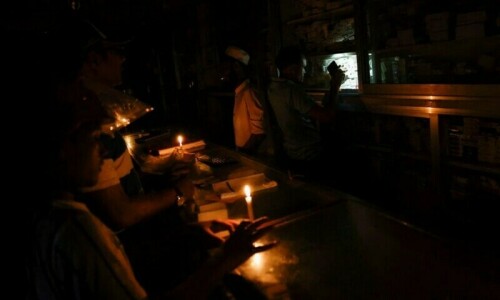ON THE SHATT AL ARAB (Iraq): The rusted skiffs chug down this broad channel lined with marsh, sometimes so laden with illegal cargo that they rise only half a foot above the waterline. Usually they’re carrying diesel fuel, bought cheaply in Iraq and smuggled for a handy profit to countries such as Iran, Kuwait and the United Arab Emirates.
To authorities here in the southeastern tip of Iraq, the smugglers are no more than a law enforcement nuisance. But for US and Baghdad officials, they are the result of what has become one of the most vexing problems in rebuilding Iraq: cheap gasoline. Iraq has long subsidized gas prices, a practice that continued after the US-led invasion in 2003. Iraqi gas costs about 5 cents a gallon, whereas neighbouring Kuwait charges 79 cents.
The difference in prices has created a thriving black market, with smugglers moving hundreds of thousands of gallons of fuel every day by land and sea to neighbouring countries, Iraqi officials say. The smuggling has exacerbated a severe fuel shortage in Iraq, leading to long gas lines and forcing a nation with the world’s second-largest reserves of oil to import from $240 million to $400 million per month in fuel, according to various estimates.
“We have to stop the oil smuggling,” Oil Minister Ibrahim Bahr Uloum told reporters last month as he announced a law-enforcement crackdown. “We’re going to do our best.” The Finance Ministry puts the total cost of subsidized fuel, a figure that includes direct subsidy costs as well as gas purchased to replace smuggling losses, at $6.9 billion, a staggering 28% of the country’s projected GDP in 2005. That’s money the Iraqi government could otherwise use for electrical, water and health projects.
“The only reason behind the smuggling is the subsidized prices,” Adnan Ameen, the head of the Finance Ministry’s macroeconomics unit, said at a recent conference in London sponsored by the liberal Soros Foundation. “It has been … a huge drain on the national budget.”
US and Iraqi efforts to deal with the problem have failed. Immediately after the invasion, Halliburton Corp., the Houston-based oil services company once run by Vice President Dick Cheney, was given a contract to import fuel into Iraq in the face of widespread shortages.
Democrats later attacked Halliburton’s contract, saying the company was charging too much in order to boost its profits. The Defence Contract Audit Agency raised concerns that Halliburton had overcharged the federal government more than $61 million. The contract ended last year, and the Iraqis now purchase fuel themselves on the open market. The Pentagon also purchases gas at market prices for military use.
Realizing the problem, the Coalition Provisional Authority, the US body that governed Iraq before sovereignty was returned, decided that it needed to remove the subsidies, which were inherited from Iraq’s state-controlled economy. Besides fuel, Iraqis receive a subsidized monthly food ration, which takes up another quarter of the government’s budget. Fertilizers, industrial products and electricity are also subsidized.
But, fearing social unrest, US officials running the coalition did nothing in the end. A senior economic advisor, quoted anonymously in a recent study by the congressionally funded United States Institute of Peace, described the failure to remove the subsidies as “one of the worst mistakes of the occupation.”
“The coalition’s fear that raising prices would lead to mass protests was understandable, but the adverse economic consequences of the subsidies were immense,” the report concluded. “When the coalition handed over power in June 2004, it bequeathed to the Iraqi government a massive expense that would consume half of its budget.”
Iraq was forced to tackle the problem in November 2004 after signing a debt relief agreement with the Paris Club, an informal group of major creditor nations. As part of the agreement, Iraqi officials promised to remove the subsidies by December.
That pledge, however, is now being renegotiated because Iraqis also fear that disaster would result from a sudden boost in fuel prices.
“Only a crazy man would increase the price at this time,” said Karim Shamma, an energy consultant and former Oil Ministry official. “The Paris agreement is not a verse of the holy Quran. We should take a year or two and gradually increase the price.” The failure to remove the subsidies means that smuggling continues to boom in Iraq, where it has a long history. The business thrived most recently under the United Nations’ oil-for-food programme, which was supposed to tightly control oil shipments in exchange for humanitarian supplies. Instead, Saddam Hussein smuggled out billions of dollars in oil to US allies and other countries.
—Dawn/LAT-WP News Service














































Dear visitor, the comments section is undergoing an overhaul and will return soon.